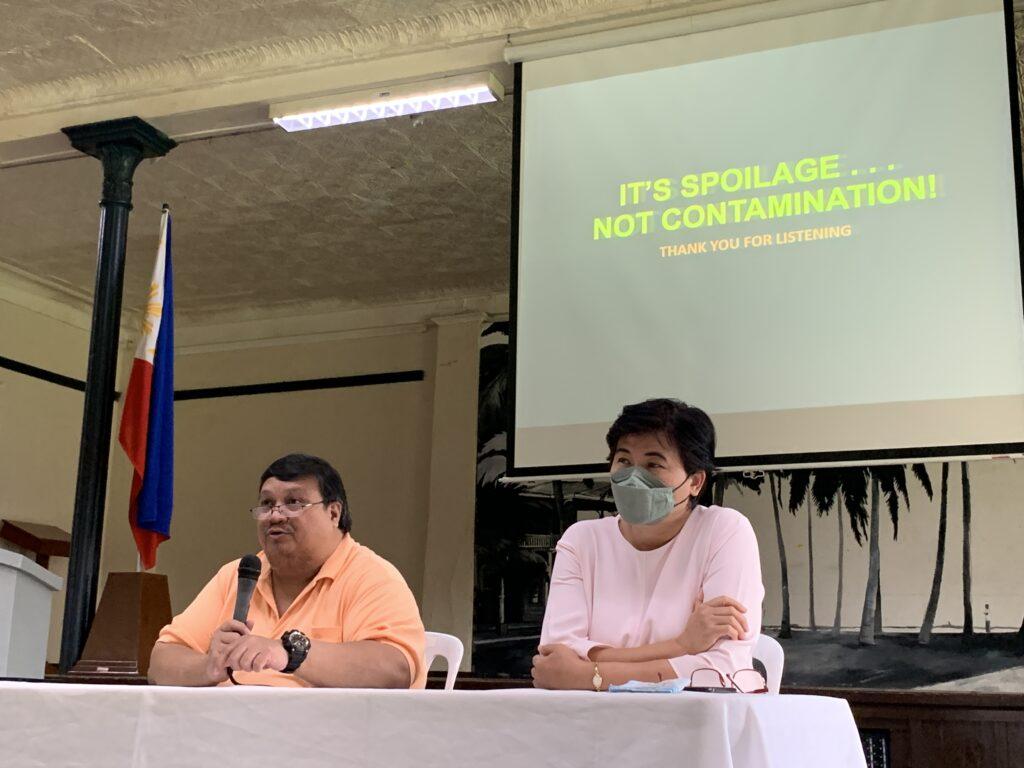by Ranjie Mae C. Nocete and Nathaniel E. Carampatana | November 7, 2022

Investigation of the alleged ‘food contamination’ incident with the Silliman University (SU) Cafeteria resulted in no definite conclusion due to no timely sampling of the leftover food for laboratory testing.
The alleged incident occurred during the acquaintance parties of the College of Mass Communication and School of Public Affairs and Governance last Oct. 1 but the investigation officially started five days after.
With the late investigation, Dr. Walden Ursos, investigator of the incident, said that through deductive analysis, “the food may have started to [become] spoil four to six hours from the time of serving.”
Through a cross-sectional descriptive survey, Ursos said that the food and drinks were served at 3-4 p.m. with the dinners starting at 7-8 p.m. Moreover, no food warmers were used while waiting for dinner to start.
To prevent future incidents, Ursos emphasized “punctuality in attending social activities,” and suggested that school event organizers place their eating schedules at the earlier portion instead of the usual middle-to-end part of the program.
He also suggested the use of food warmers “to not increase the risk of spoilage and [or] food contamination.”
Students were reported to experience symptoms of acute gastroenteritis such as diarrhea, abdominal cramps, nausea, and vomiting.
In a Google form questionnaire disseminated to both academic units by their respective deans, 97.8 percent of students believed that the cause of their gastrointestinal illness was due to the ‘contaminated’ food served by the cafeteria.
Moreover, 83.7 percent of respondents said that they do not trust the cafeteria in catering food and drinks for school events anymore.
In response to the students who will not trust the cafeteria, Prof. Jane Belarmino, SU Vice President for Development, Enterprise, and External Affairs (VPDEAA) emphasized that it is a policy for all university events to get their food at the cafeteria.
She said that the reason for this is “to easily trace the food source and conduct necessary procedures in case of ingestion emergencies.”
Belarmino warned students that if they break this policy and emergencies occur, “they [students] will be held responsible.”
Ursos also added that based on past events, this was the first time a report and investigation on the university cafeteria was made.
He said that the cafeteria has provided quality service for the past years, especially in handling big events such as alumni homecomings and invitational retreats.
In the onsite inspection of the Pulido Hall kitchen, Ursos said that the cafeteria “fully satisfied all the government requirements to operate.”
According to his investigation, kitchen utensils are well-cleaned and that the vehicle used to transport food and drinks is equipped with closed cabinets and covers to prevent contamination.
Stool specimens taken from the cooks and food servers also came out negative for bacterial contaminants and parasites.
Ursos reminded the SU admin to intervene in time “so as to not miss the golden period to gather evidence[s] to determine or prove the occurrence of a food outbreak in the campus.”
For future emergencies, Belarmino advised students and teachers to immediately file a report to their office to ensure that the problem will be addressed effectively.
“Let us help one another. We thank everyone who initiated these [reports and investigations], for these will serve as our basis for improvement. The university is always looking to take care of its constituents,” she concluded.


